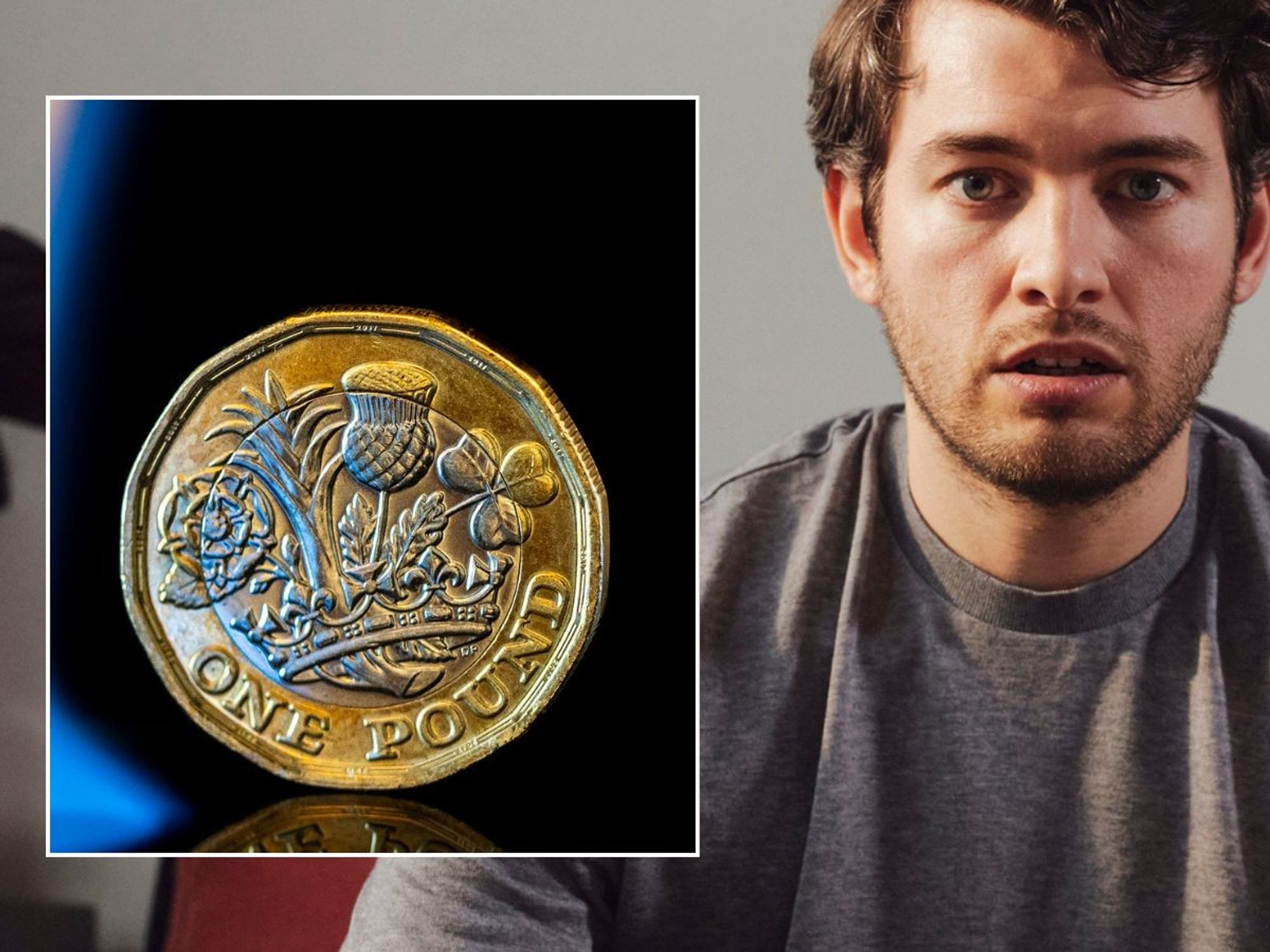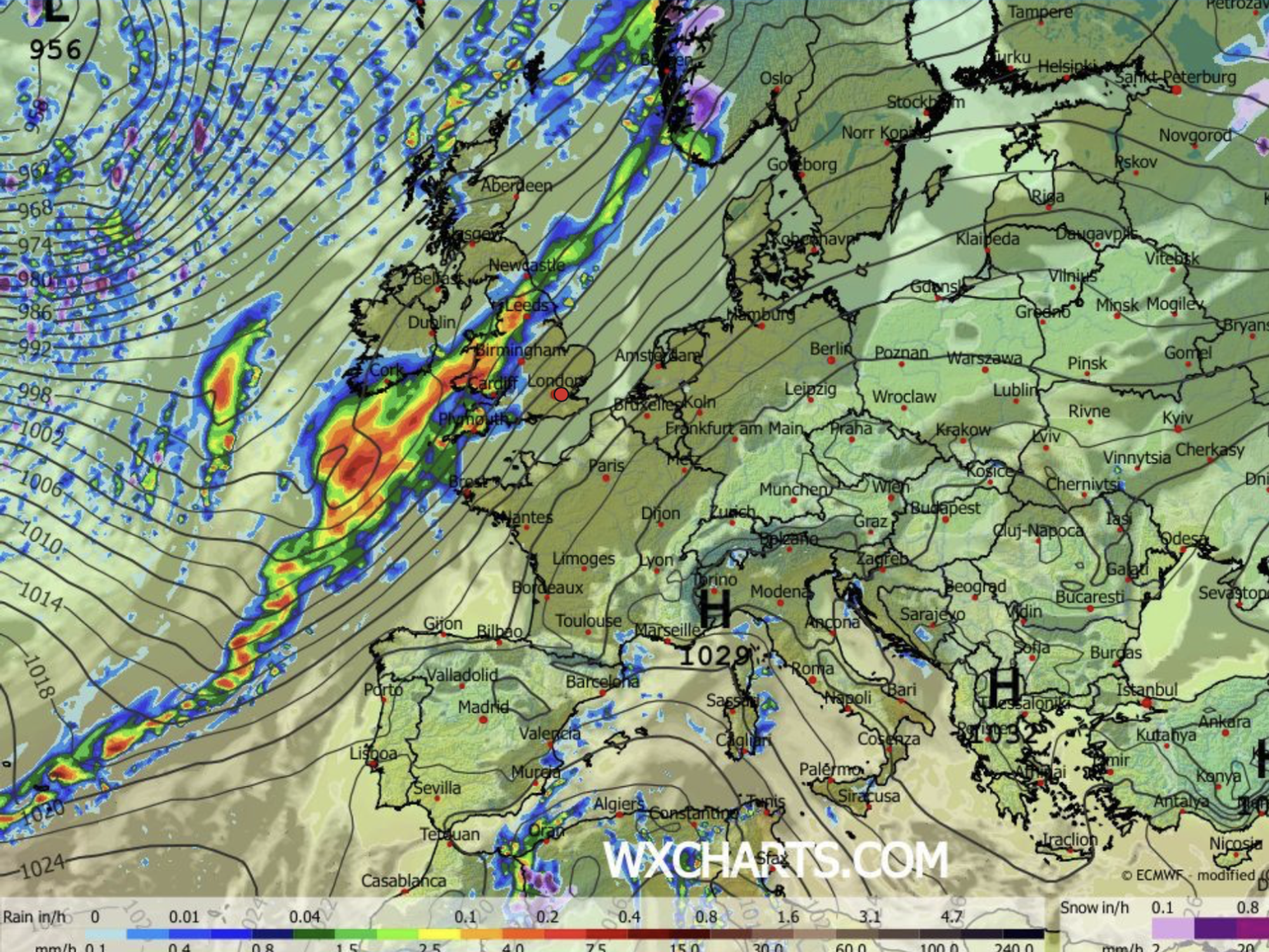Hydrogen cars blasted as 'scientifically misaligned' amid claims they 'damage the reputation' of the Olympics
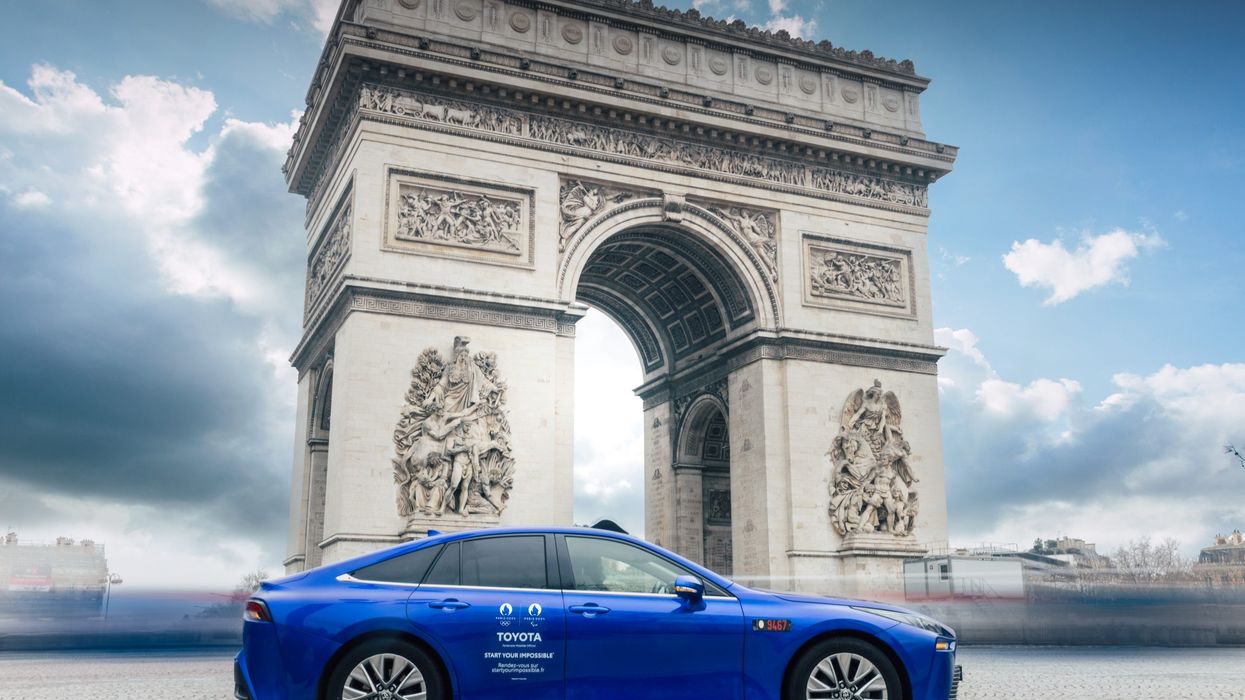
The Toyota Mirai is the official vehicle of the 2024 Summer Olympics | TOYOTA

The group of academics said hydrogen fuel cell cars were only 'marginally cleaner' than petrol and diesel vehicles
Don't Miss
Most Read
Latest
A group of 120 scientists from around the world have slammed hydrogen vehicles and their upcoming use at the Paris Summer Olympics, which are set to take place within weeks.
The hydrogen-powered Toyota Mirai is the official vehicle of the 2024 Paris Olympics, with 500 cars and 10 coaches being supplied to support proceedings.
This will be in addition to around 1,150 electric vehicles, although a group made up of scientists and engineers from the University of Cambridge, Oxford University and the University of Colorado have criticised the use of hydrogen.
An open letter to the organisers of the Paris Olympics highlighted how 96 per cent of the world's hydrogen derives from fossil fuels like methane gas.
Do you have a story you'd like to share? Get in touch by emailing motoring@gbnews.uk
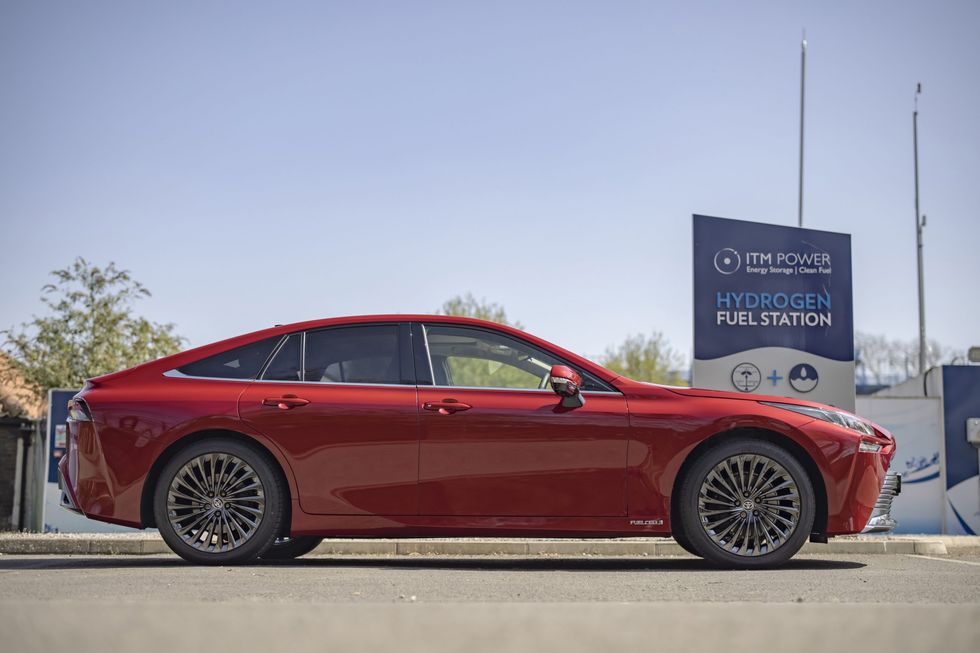
The Toyota Mirai does not release any harmful emissions from the tailpipe
|TOYOTA
They argue that most hydrogen-fuelled vehicles, like the Mirai, are much more polluting than battery electric vehicles.
It was also highlighted how the vehicles are only "marginally cleaner" than vehicles with internal combustion engines.
In the lead-up to the Olympics, organisers said they wanted to host the "greenest-ever Games," although this has been met with concerns from experts.
The Toyota Mirai is one of only a handful of hydrogen-powered passenger vehicles available on the market, with the only real competitor being the Hyundai Nexo.
While the market price of the Mirai is £64,695, it has a staggering fuel economy of between 336mpg and 348mpg, as well as producing zero emissions, with the only by-product being water.
Despite this, the authors of the letters stated: "We are writing to express our concern that Toyota’s promotion of a hydrogen car is scientifically misaligned with net-zero and will damage the reputation of the 2024 Games.
"Opportunity remains to reroute, and we urge that you require Toyota to replace the Mirai with a Battery Electric Vehicle as the official Games vehicle," CNN reported.
While many manufacturers have completely avoided the use of hydrogen in the development of their vehicles, some, like Toyota, have invested in the fuel type in hopes of achieving net zero emissions.
As a result, there has been very little development around the UK and the rest of the world to accommodate a widespread rollout of hydrogen fuel cell vehicles.
According to the December 2023 Hydrogen Strategy Update, there are eight publicly accessible refuelling stations in the UK, with plans for four more.
The data from the Department for Energy Security and Net Zero (DESNZ) shows that this is to cater for approximately 265 vehicles - made up of buses, HGVs, vans and cars.
This pales in comparison to estimates which suggest there are around 1.1 million battery electric vehicles on the road across the UK.
LATEST DEVELOPMENTS:
- DVLA issues urgent car tax warning as drivers could be slapped with huge £2,500 fine - 'Don't risk it'
- Motorists issued urgent warning of new medical driving licence laws being introduced within months
- Drivers risk £1,000 fine for ignoring little-known road markings that could break Highway Code rules
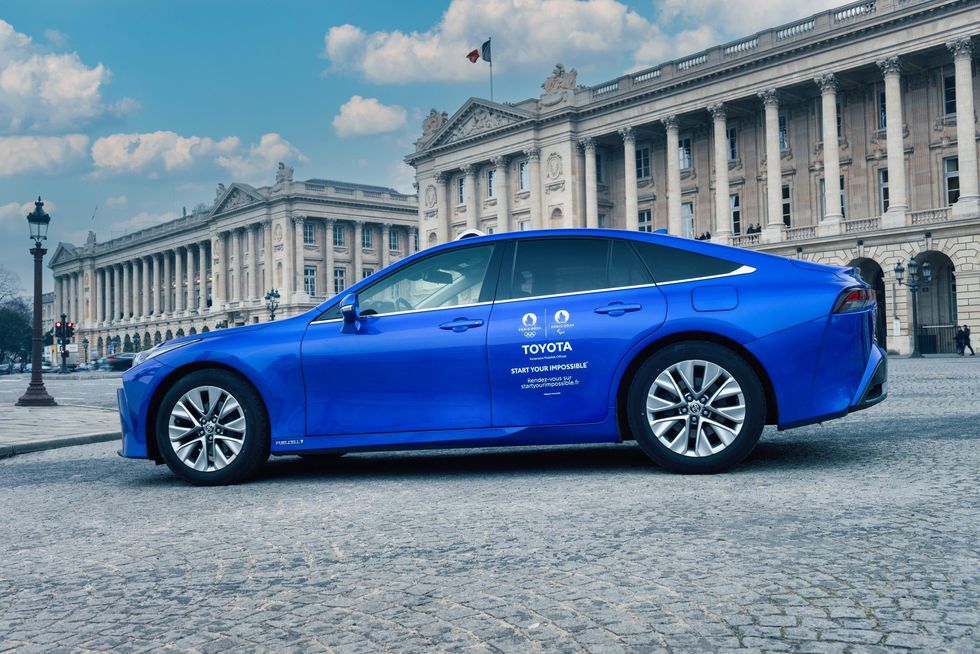
Experts slammed the use of the Toyota Mirai for the Summer Olympics
|TOYOTA
The Zapmap database also shows that there were 64,775 electric vehicle charging devices across almost 34,000 different locations at the end of June 2024.
This represents a year-on-year increase of 46 per cent in the number of public devices, bringing the UK closer to its target of installing 300,000 chargers by the end of the decade.






